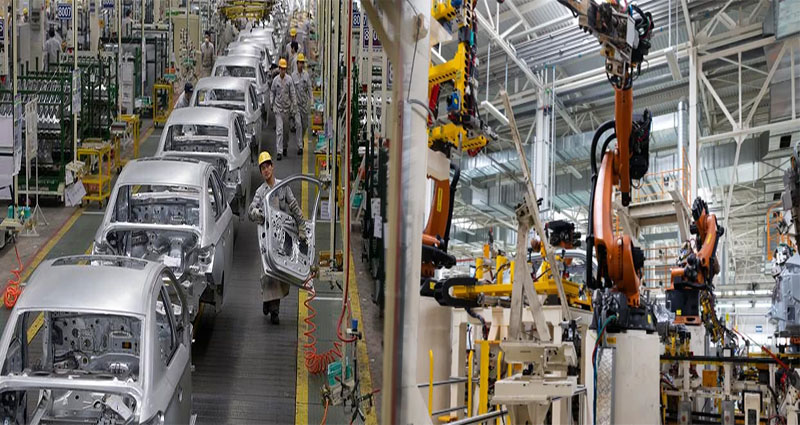The automotive industry plays a significant role in global manufacturing and transportation, but it also has a substantial impact on the environment. In recent years, there has been a growing emphasis on adopting sustainable practices within the automotive manufacturing sector to reduce carbon emissions, minimize waste, and promote environmental conservation. These sustainable practices aim to create more eco-friendly vehicles and operations while meeting the demands of a rapidly changing industry. Here are some key sustainable practices being implemented in the automotive manufacturing sector:
1. Electric Vehicle Production
One of the most notable sustainable practices in the automotive manufacturing sector is the increasing focus on electric vehicle (EV) production. Electric vehicles produce zero tailpipe emissions, reducing greenhouse gas emissions and dependence on fossil fuels. Automotive manufacturers are investing in EV technology, developing efficient battery systems, and expanding charging infrastructure to promote the adoption of electric vehicles and reduce the carbon footprint of transportation.
2. Lightweight Materials and Fuel Efficiency
Automotive manufacturers are incorporating lightweight materials such as aluminum, carbon fiber, and advanced composites into vehicle design to improve fuel efficiency and reduce energy consumption. Lightweighting reduces vehicle weight, leading to lower energy consumption, improved performance, and reduced emissions. By investing in lightweight materials and fuel-efficient technologies, automotive manufacturers can enhance the sustainability of vehicle production and operation.
3. Renewable Energy Sources
To reduce the environmental impact of manufacturing operations, automotive companies are increasingly turning to renewable energy sources such as solar, wind, and hydropower. By utilizing renewable energy in manufacturing facilities, automakers can lower their carbon footprint, decrease reliance on fossil fuels, and contribute to a more sustainable energy future. Implementing renewable energy sources helps reduce greenhouse gas emissions and promote environmental stewardship within the automotive industry.
4. Waste Reduction and Recycling
A key aspect of sustainable manufacturing practices in the automotive sector involves waste reduction and recycling initiatives. Automotive manufacturers are implementing strategies to minimize waste generation, optimize resource utilization, and enhance recycling practices. Recycling materials such as metals, plastics, and electronics not only conserves natural resources but also reduces landfill waste and promotes a circular economy approach to manufacturing.
5. Supply Chain Sustainability
Automotive manufacturers are increasingly focusing on supply chain sustainability by working collaboratively with suppliers to promote responsible sourcing practices, reduce environmental impact, and improve social responsibility. Implementing supply chain transparency, conducting supplier audits, and promoting ethical labor practices are essential components of sustainable supply chain management in the automotive industry. By prioritizing supply chain sustainability, automakers can ensure that sustainability principles are upheld throughout the entire manufacturing process.
By embracing sustainable practices such as electric vehicle production, lightweight materials, renewable energy sources, waste reduction, and supply chain sustainability, the automotive manufacturing sector is moving towards a more eco-friendly and socially responsible future. These initiatives not only help reduce the environmental impact of vehicle production but also drive innovation, promote efficiency, and contribute to a sustainable automotive industry for generations to come.









